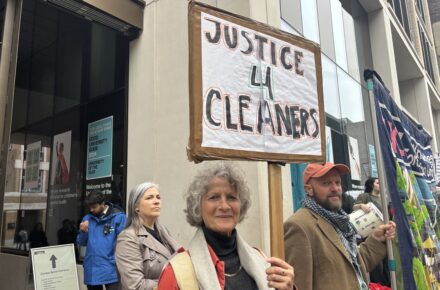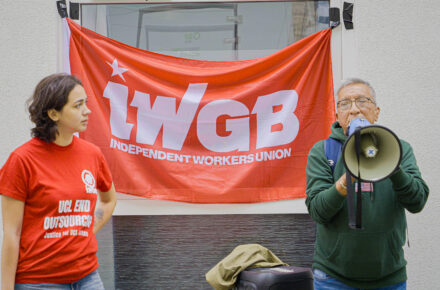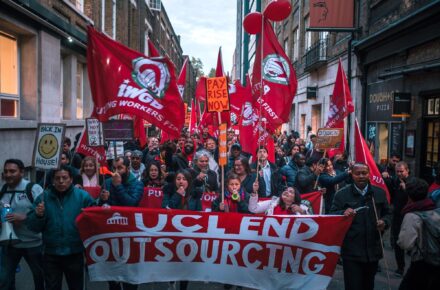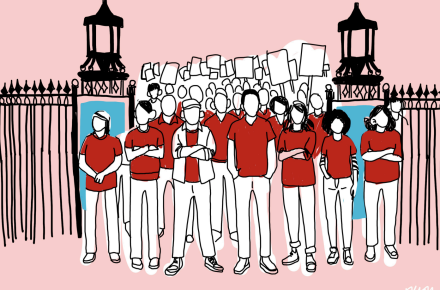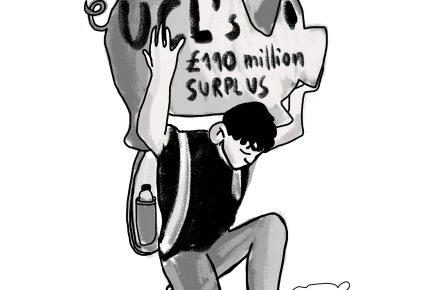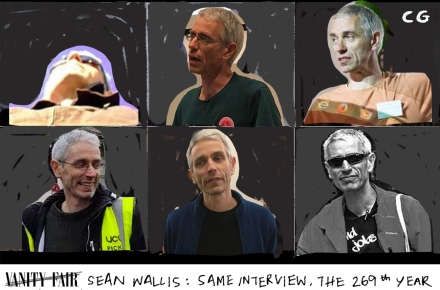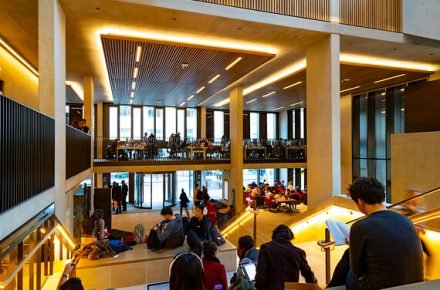
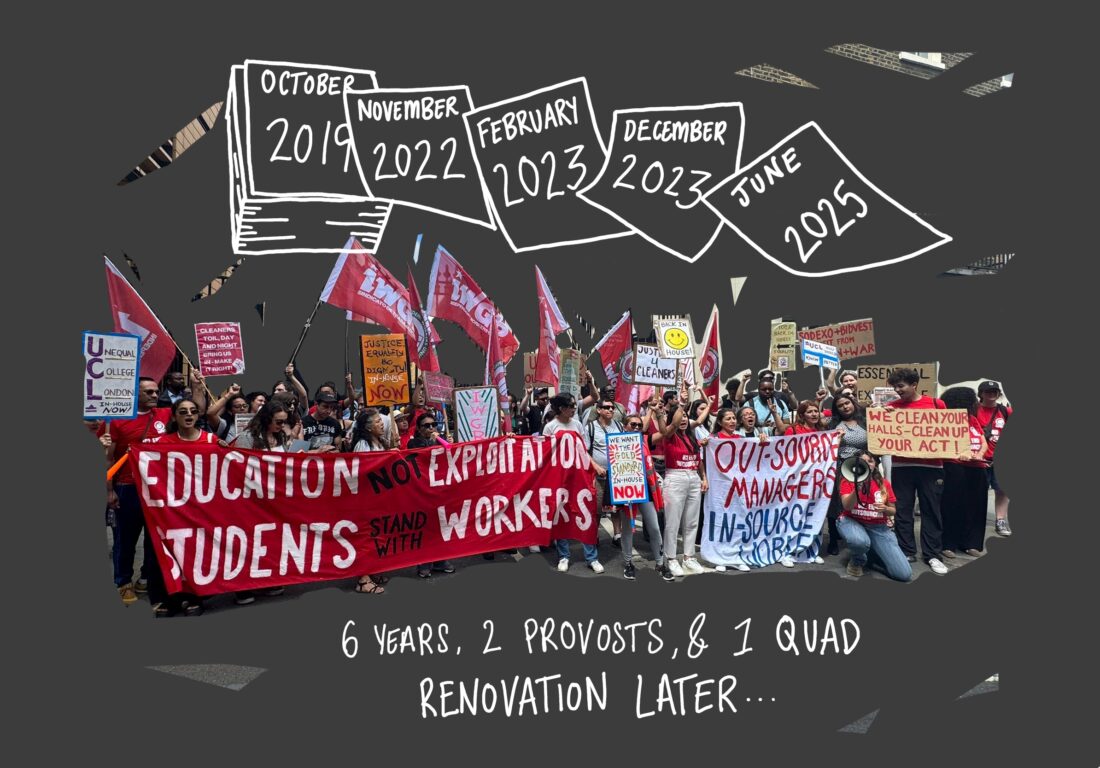
Workers at UCL disrupted the Open Day on 28th June to campaign against outsourcing. Despite promises made about pay parity for outsourced workers in October 2019, UCL and outsourcing companies continue to deny workers secure contracts, workplace equality, and continue unlawful deductions of holidays.
Cleaning, catering, and security at UCL have been managed by external providers like Bidvest Noonan, Sodexo, and Compass since 2000. In 2019, after a campaign by The Independent Workers’ Union of Great Britain (IWGB), UCL management committed to give outsourced workers equal sick pay, holidays, parental leave, and pensions. Pay parity was achieved for most outsourced workers at the time but outsourced cleaners in the Cruciform building continued to be paid £13/hr, while in-house workers were paid significantly more. The issue of underpayment was only recently addressed after collective pressure was put on Compass. This was 6 years after the belated offer of pay parity. Outsourced security on the other hand make £14-14.50/hr, paid on Grade 4 of the UCL pay scale, despite performing many of the duties of directly employed staff on Grade 5. IWGB has demanded in an official press release that all cleaners, porters, and security must be paid a dignified wage of at least £17 per hour.
In conversation with The Cheese Grater, Abel Harvie-Clark, the branch organiser working at the IWGB said, “in light of the attempts to cut costs at migrant workers’ expense, we will take all legal and collective public action, as our members decide, to achieve justice.”
Besides the need for fair pay, IWGB says that around 100 workers continue to be employed on zero hour contracts which do not guarantee a minimum number of working hours to the workers or employees. Harvie-Clark explained that Sodexo, UCL’s cleaning subcontractors, has allegedly kept cleaners on 3-month contracts for many years now. Security guards under subcontractor Bidvest Noonan have faced huge cuts to their holidays, as they are now classed as ‘part-time’ workers despite working a minimum of 42 hours per week. Cleaners at the SU are yet to be paid according to the UCL pay scales. There is an ongoing employment tribunal concerning a claim of unlawful deductions of holidays from security guards.
IWGB has also called for an end to the racial discrimination outsourced workers face on campus. The vast majority of outsourced workers are Black, Asian, Latin American or from other racially marginalised groups. UCL has tried to propose invasive measures such as biometric sign-in systems before, which are not required of other university employees.
Concerns have also been raised by workers and IWGB representatives about the wider practices of outsourcing companies employed by UCL. Dominic Blakemore, the CEO of Compass, the company contracted for catering services, sits on the UCL Council which oversees the management and administration of UCL. This is an obvious conflict of interest as the head of the company profiting from these outsourcing services also has influence over the council responsible for holding the company accountable. Bidvest Group, the parent organisation of Bidvest Noonan is involved in the global transportation of weapons and fossil fuels. Moreover, Bidvest Noonan have launched attacks on the jobs of unionised security guards before, specifically in 2023, which led to 40 workers permanently losing their jobs and the remaining 216 facing pay cuts.
Harvie-Clark further commented: “Fundamentally, the problem is the exploitative practice of outsourcing whereby UCL tries to wash its hands of any responsibility, contracting out services to rogue companies already infamous for their mistreatment of workers.”
“This creates a race to the bottom where companies are motivated to offer the service for as little as possible, cutting costs inevitably on the backs of these workers who bear the weight of this practice, are the lowest paid on campus, and the most overworked.”

